What is the Best Time to visit Israel? In-depth Answer
To answer what is the best time to visit Israel, we will look at the weather, prices, holidays, festivals, and more.
Of course, the answer to the question is: “it depends on various factors.” So let’s start by looking at the weather.
Table of Contents
Weather
Rain
Most people do not like traveling in the rain. So let’s see the monthly average amount of precipitation:
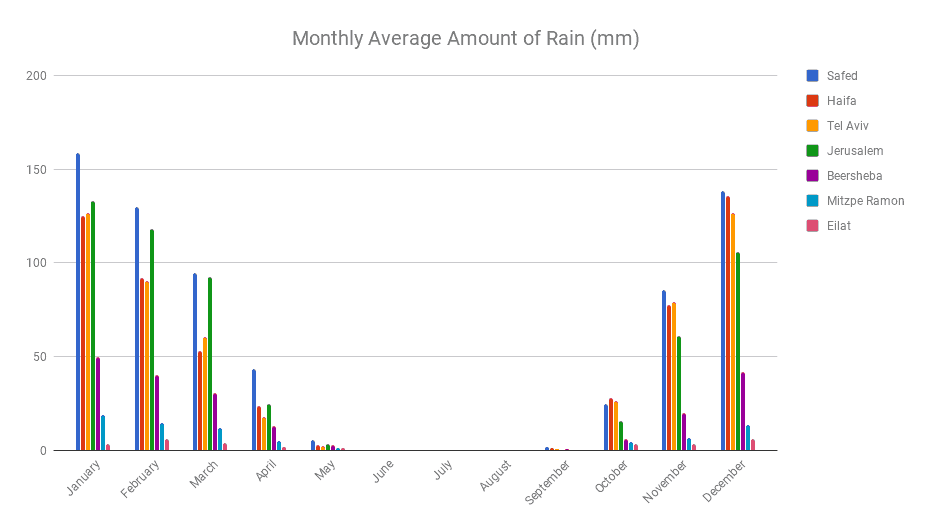
As you can see, the rainy season starts in October, and the most substantial showers are during December, January, and February. Also, there is a significant deviation between different regions in Israel. In the South, for example, Eilat, there are almost no rains. And the more to the North you advance, the more rains there are.
Temperature
And now, let’s look at the temperature:
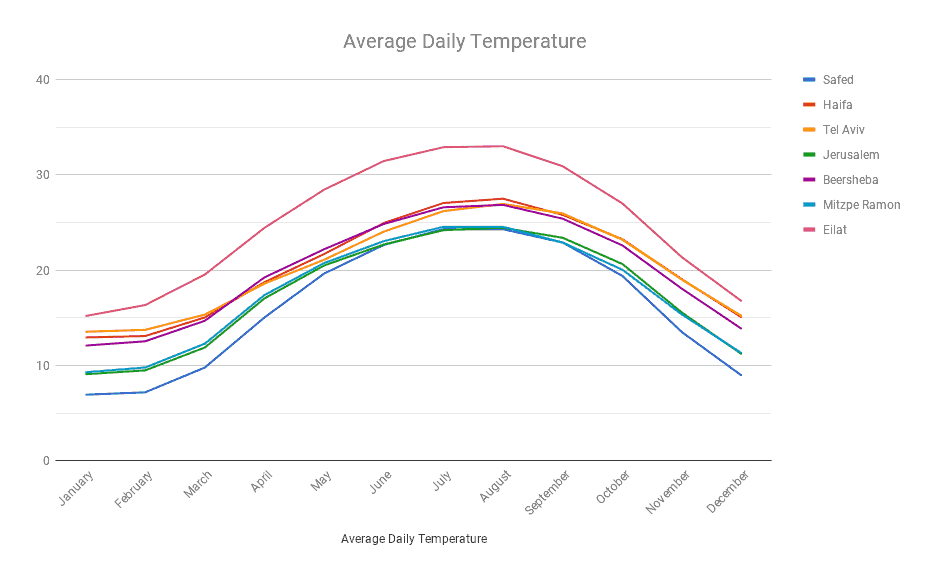
The temperature graph shows the opposite tendency. During the rainy month, the temperature decreases. And throughout the dry month, especially the summer, the heat is on.
Note: see Events and Festivals in Israel to find out more about where I collected this data.
Best time to visit Israel – from the Weather Perspective
Though you can visit Israel year-round, Summers are hot, and Winters are rainy. That leaves us with Spring (September – November) and Autumn. I prefer Springs since nature is blooming after the rainy winter (while in Autumn, trees and flowers are yellowish after the hot summer). Thus from the weather perspective, the end of February till May are the best months to visit Israel.
What is the cheapest time to go to Israel?
According to tourist expenditure data, almost 50% of expenditure goes to accommodations. And when checking accommodations, we see that January and February were the cheapest months. In contrast, April and October were the most expensive months (probably because of holidays: April – Passover, October – Sukkot).

Note: to check out all data, see: Israel Tourism Statistics.
What is low season in Israel?
The low season is also the cheapest, from December (except Hanukkah) to March.
Should I visit Israel during the holidays?
As we saw from the previous section, accommodation prices will be higher during multi-day holidays. Thus from a price perspective, you should not visit during the holidays. Moreover, more people will be at the attractions, meaning longer lines, traffic jams, etc.
However, if you are visiting relatives who should be on vacation, then holidays may be your only option. Moreover, if you want to see a specific event, for example, the easter celebration in Jerusalem, you will visit during Passover.
When are multi-day holidays?
April – Passover
September – various holidays including Rosh HaShanah
October – Sukkot
December – Hanukkah
Note: the dates may vary due to the moon calendar.
Events and Festivals
There are various events and festivals, but when I think about what would tip the scale to visit during a specific month, only one thing comes to mind: bird migration. Not in many countries can you see millions of migrating birds. Here are two options: Agamon Hula and Pelican migration at Emek Hefer (October – November).
There are many agritourism events, for example, Cherry Picking, Strawberry Picking, Olives Picking, Picking Grapes, and many others, but they are not unique to Israel.
You can find additional details in the complete guide to Events and Festivals in Israel.
What is the worst time to visit Israel?
The worst time for a visit is during the Jewish holidays and the summer months (July, August, and the start of September).
The prices will go up during the holidays, and there will be many people at many attractions. And during the summer it is boiling.
Common Questions
From the weather perspective, the best month to visit Jerusalem are September – November and March – May. And if you do not mind the rains, then January and February are the cheapest. In any case, make sure you are not visiting during a holiday.
If you visit Tel Aviv for its sea, then from June to October, the water temperature is above 23 C (on average). And all other aspects were mentioned in the previous answer.
November is a good time for a visit. Accommodation prices are not high, and the weather is pleasant. The only downside is the chance of rain.
The weather is pleasant in April. But Passover vacation is usually also in April, meaning lodging prices will go up.
Due to the rains, winter is the cheapest season. But if you do not mind the rain and will visit the big cities, I suggest February instead of December. February is more affordable since there are holidays like Hanukkah and Christmas in December.
In August, the temperature in Israel usually reaches 30-40 C (86-104 F). Most Israeli will travel to water sources (seas, rivers, and springs). Also, August is the summer vacation. Thus, many will be traveling. Overall, visiting in August is doable, but you will not enjoy it due to the heat.
For additional suggestions, see Summer in Israel.
Summary
The best time to visit the Holy Land is:
- The months of September – November and the end of February – May have the best weather. I prefer Spring (the second period) since nature is blooming.
- January and February are the cheapest months. Thus if you do not mind the rain and plan mostly an urban trip, this could be a good fit.
- Do not forget to take into account events and festivals.
- Do not visit during the Jewish holidays.
See Israel Trip Planner for suggested itineraries.
Additional Resources
Here are several resources that I created to help travelers:- Trip Planner with Attractions and Itineraries is the page that will help you create your perfect travel route.
- What is the Best Time to visit Israel? To answer this question, we will consider the weather, prices, holidays, festivals, and more.
- Information and Tips for Tourists to Israel will answer the most common questions tourists have about Israel (including safety, passports, weather, currency, tipping, electricity, and much more).
- Israel National Parks and Nature Reserves include a complete list, top ten, map, tickets (Israel Pass, Matmon, combo), and campsites.
- If you are looking for things to do, here are the pages for Jerusalem, Tel Aviv, Haifa, Sea Of Galilee, Akko (Acre), Eilat, Nazareth, Safed (Tzfat), and Makhtesh Ramon.


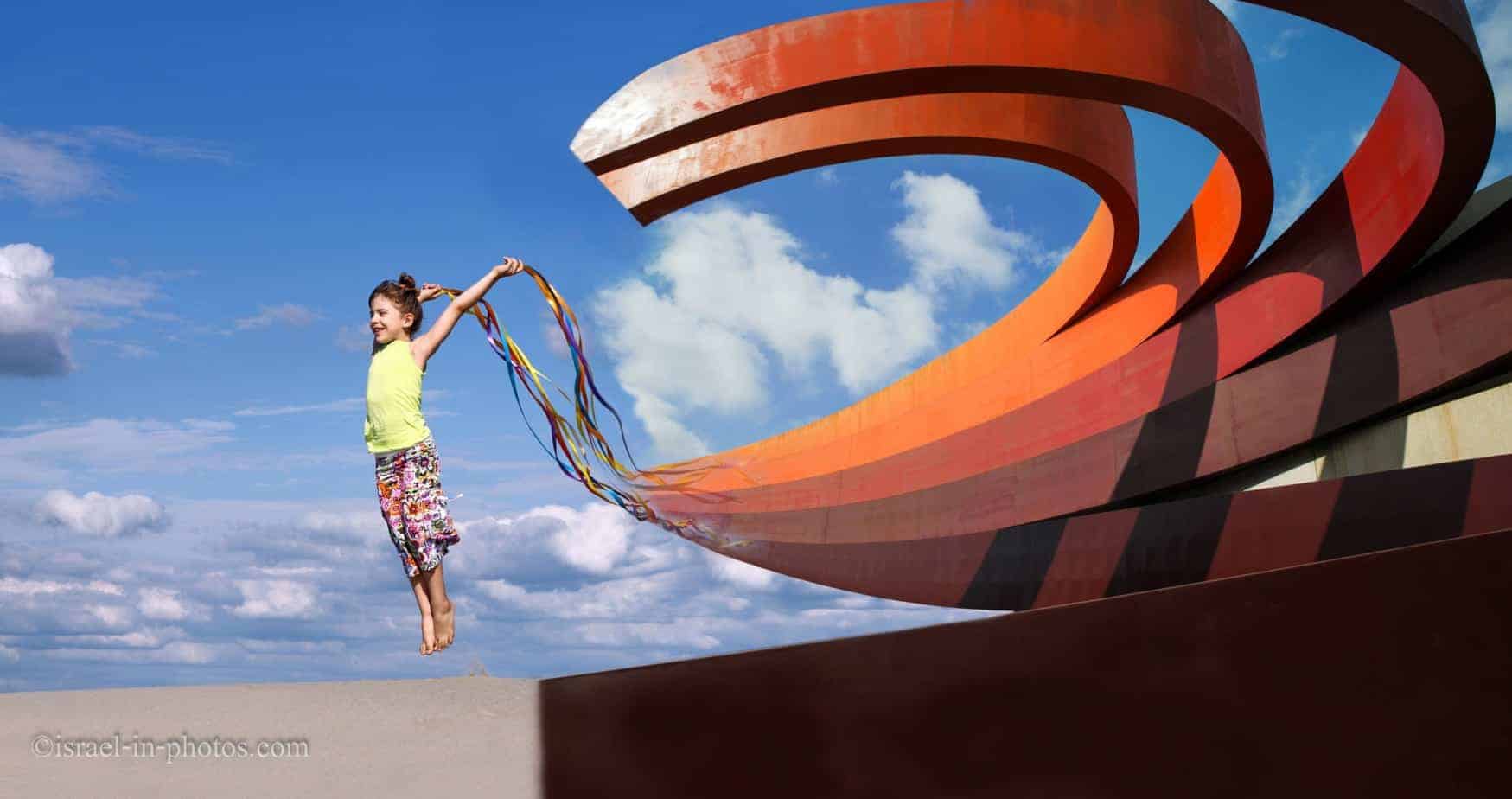
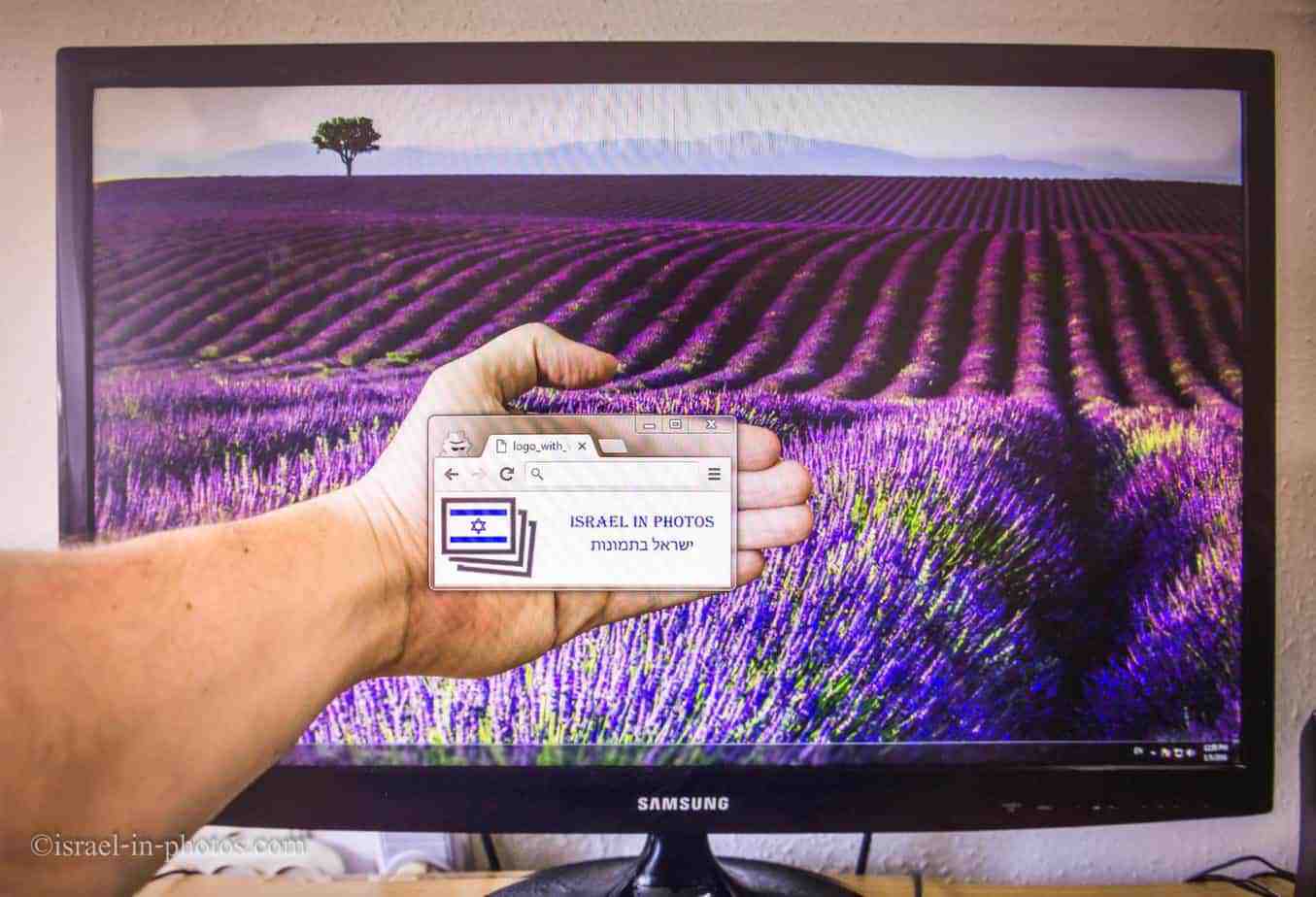

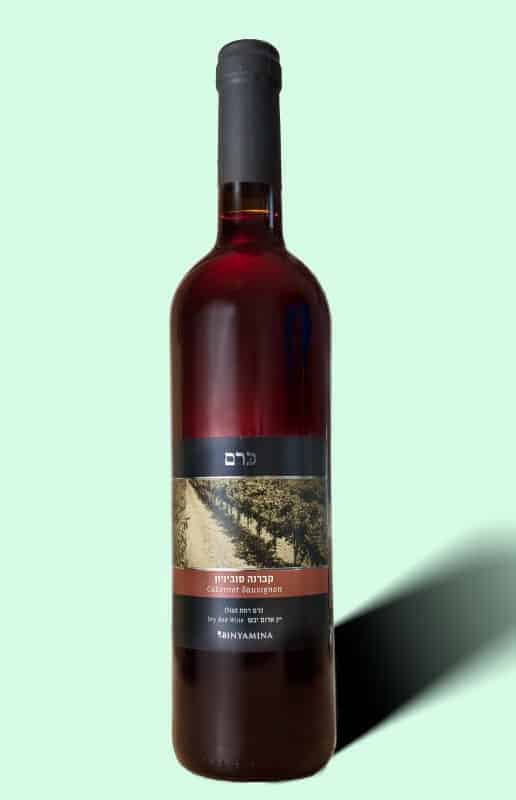


Am visiting Israel and Jordan first two weeks in February. Want to visit Holy Sepulchre. Am concerned about how steep the stairs are to Golgotha as I have knee problems. Is there a hand rail ? You think I can make it? I am 74 but other than that in good shape. Thanks
Hi Anne,
The stairs are rather steep, but not long (one floor up). As far as I remember there are a hand rails (at least on the stairs to the left).
In February it should not be oo crowded, but there are always people and you can ask for help.